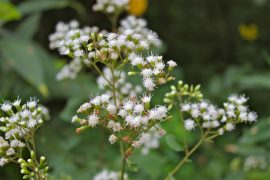10 Best PLANTS THAT REPEL SNAKES & Organic Way to Repel Snakes
Best Snake repellent plants
Some regions have a higher likelihood of snake sightings than others. While homeowners are okay with birds and butterflies, they probably won’t welcome snakes in their property.
Plants to keep snakes away. You can’t always have a snake catcher ready to leap into action, so why not conducting some preventive measures? For one, go ahead and pick among the top 10 plants that repel snakes.
Top 10 plants snakes hate
1. Marigolds
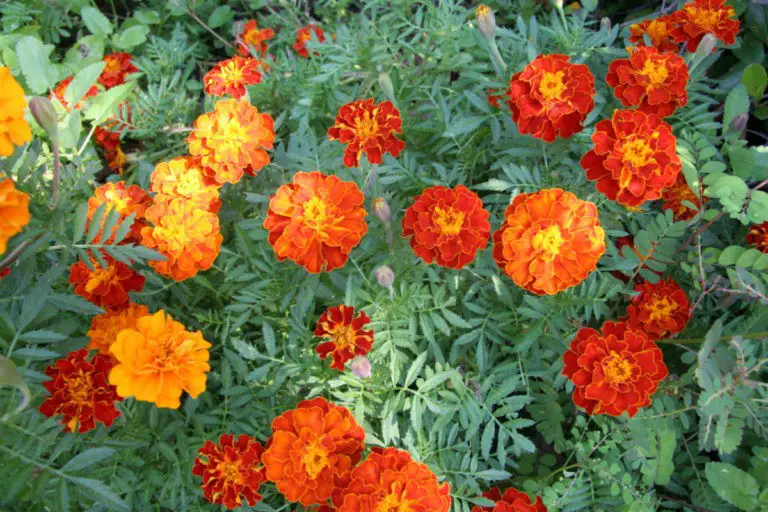
Marigolds are undoubtedly pretty flowers with their vivid yellow color, but these also release an odor that isn’t desirable to all. Insects and nematodes aren’t particularly fond of the marigold’s scent. Furthermore, farmers and homeowners alike use this against possible snake appearances.
There isn’t much scientific evidence backing up the efficacy of marigolds against snakes, but it’s a popular option due to its availability and affordability.
These plants can be bought at garden stores for transplanting, or you can start from seeds and sow them on your own. Marigolds require full sunlight and well-draining soil. Keep the soil moist through adequate irrigation.
2. Andrographis Paniculata
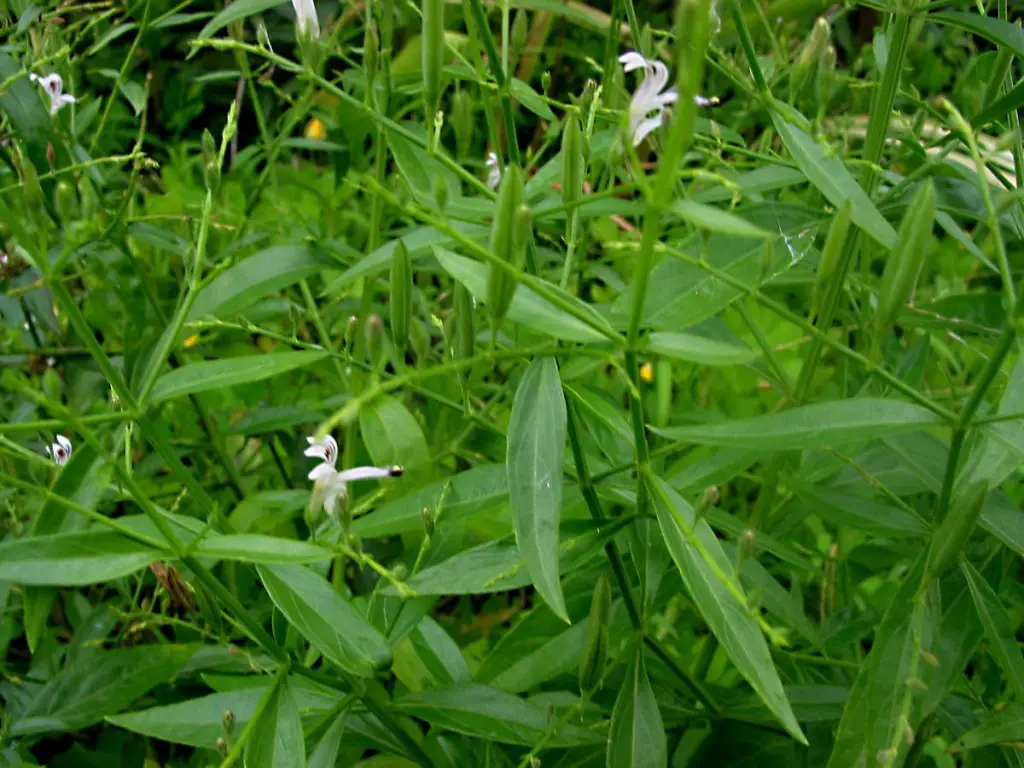
This herb is generally found in Asian countries such as India, Malaysia, and Sri Lanka. Similar to the marigold plant, the Andrographis paniculata is believed to be a good snake repellent. This could be due to the bitter taste of both the foliage and the roots.
People could also rub the Andrographis paniculata on the scales of a snake. This apparently causes the snake’s skin to become swollen. Furthermore, this plant is used as a traditional medicine for treating sinus infections and the common cold.
3. Indian Snakeroot
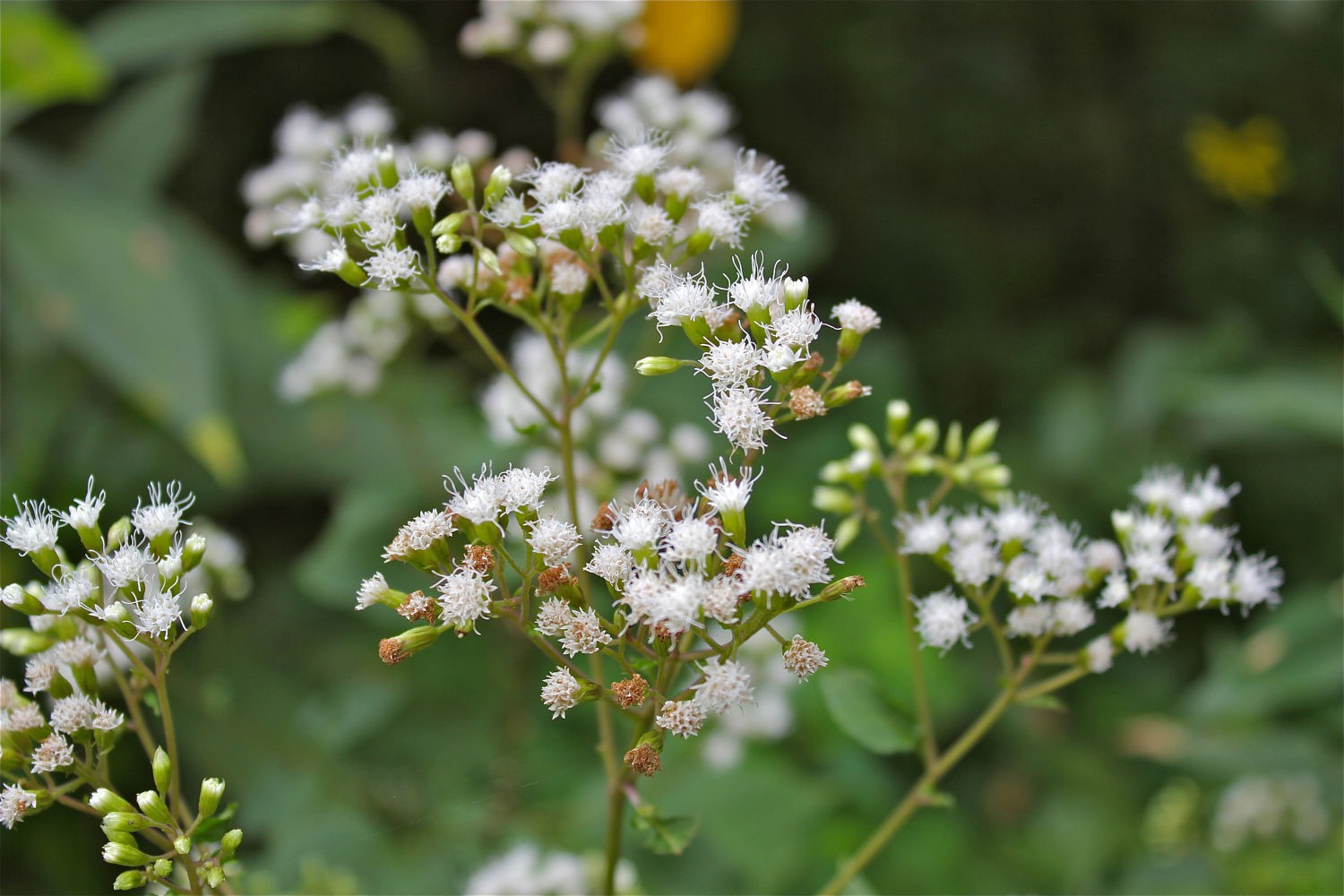
Also known as devil pepper or Rauvolfia serpentina, the Indian snakeroot is a plant used as a traditional medicine in India and other countries in East Asia. Both the foliage and the roots are used to repel snakes.
The Indian snakeroot contains reserpine, which is known to cause sleepiness and to slow down one’s heart rate. In addition, the Rauvolfia serpentina is used to treat snake bites. People either eat the foliage or rub them on the affected skin to hopefully cure themselves.
Here is a video of the Indian snakeroot:
[embedyt] https://www.youtube.com/watch?v=_W40tVH13xs[/embedyt]4. Pink Agapanthus
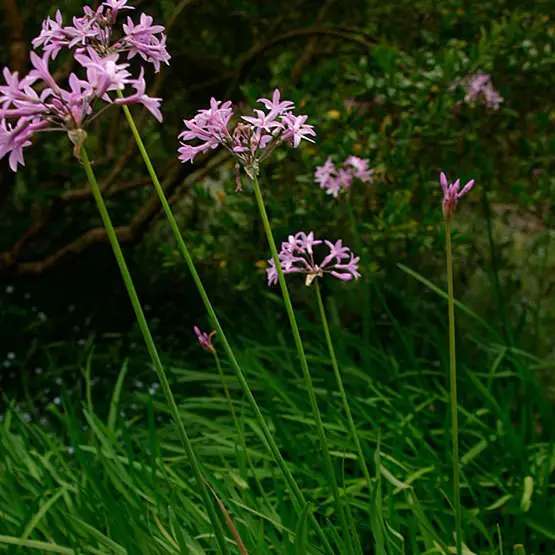
The pink agapanthus is also referred to as the Tulbaghia violacea or the society garlic. It has a great tolerance to significant heat and drought, which makes it perfect for the summer season.
Moreover, the pink agapanthus is used to treat headaches and sinus infections. You can even consume the foliage if you want. Aesthetically, the pink agapanthus looks great in anyone’s garden.
While this plant can repel fleas and mosquitos, it’s also good for keeping snakes away. The scent of both the flowers and the foliage can make the snakes irritated. Thus, you should consider placing the pink agapanthus in and out of your house.
5. Viper’s Bowstring Hemp
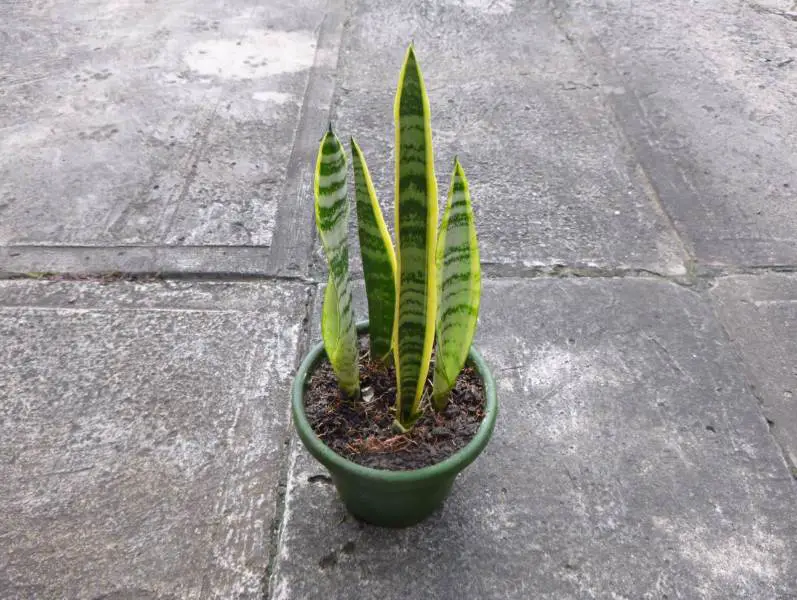
Commonly known as the snake plant or the mother-in-law’s tongue, this plant is most distinguished by its sharp leaves. In fact, this sharp appearance of the foliage is enough to dissuade snakes from approaching. The viper’s bowstring hemp can be grown through cuttings placed in potting soil.
It thrives in bright light and it can be grown during any season. Moreover, this can be grown indoors to help improve the air circulation. This plant has a decent tolerance to drought but it should not be exposed to strong cold winds and sudden frosts.
6. Mugwort
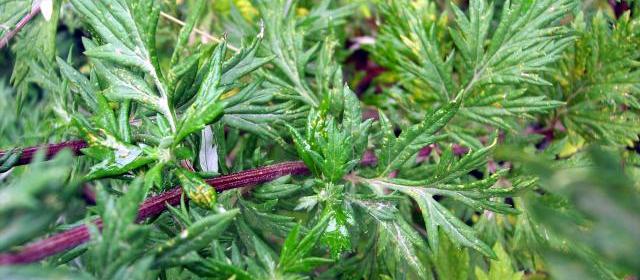
Otherwise known as wormwood or chrysanthemum weed, the mugwort plant has long been used as traditional medicine in China, Korea, and Japan. It has essential oils that have insecticidal characteristics. As for its physical features, the mugwort has stems that could easily reach a height of three feet or more.
While the reason isn’t exactly known, snakes tend to veer away from mugworts. While this is a good thing, you must be prepared for how fast mugworts can spread around your garden. They won’t quickly wither even if they aren’t well-maintained.
7. West Indian Lemongrass
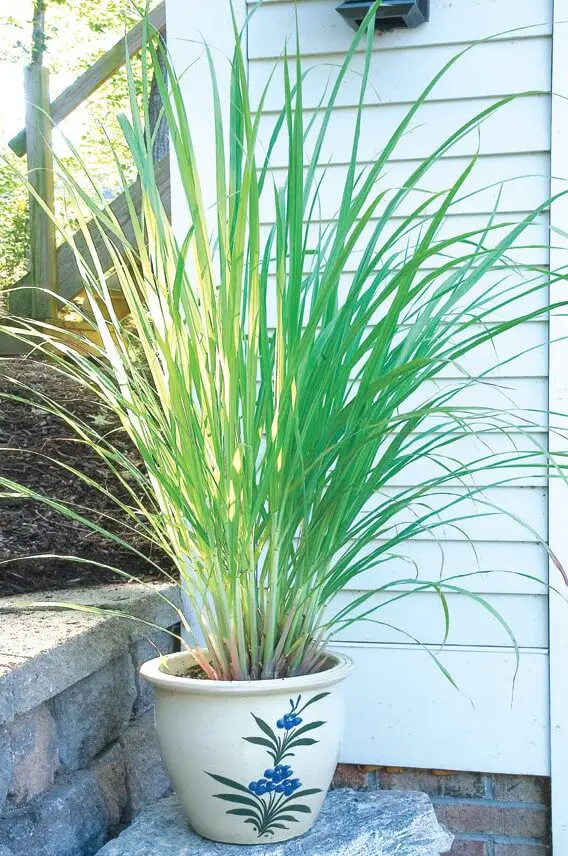
Finally, you can never go wrong with the West Indian Lemongrass if you want to repel snakes from your property. This tropical plant releases a citrus-like odor that snakes to do not like. What’s even better is that it is a low-maintenance plant.
All you have to do is to water it adequately, especially during the summer when the leaves dry out faster. The West Indian Lemongrass grows fast and it can reach a height of 1.5 meters. Furthermore, the perennial grass is tolerant to drought and will thrive if grown in fertile and moist soil.
Overall, you can prevent snakes from loitering on your property through the proper placement of particular plants. They won’t completely stop them from entering, but these snake-repellent plants should be a part of your strategy. We hope that you learned quite a bit from our guide. If you have any queries, do send us a comment.
2. Tulbaghia violacea
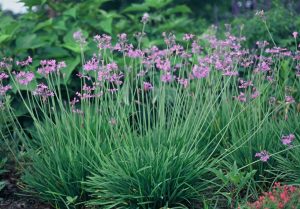
This plant is famous for being perfect in tolerating the summer heat.
It doesn’t matter if the area is prone to drought, this plant still lives!
The best part of this plant is that it is edible and is considered a herb that alleviates sinusitis and headaches.
You can use it as a decorative plant in your garden because its flowers are really attractive.
It is also perfect if you want mosquitos and fleas to be out of your house.
This plant can even cure coughs and colds.
All you need to do is boil its bulbs or take its decoction by mouth.
Snakes hate the scent of this plant as well so you can have it both inside your house or have it planted in your garden.
3. MUGWORT:
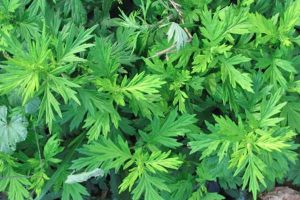
Mugwort
This plant is another perfect snake repellant that you could place in your garden.
It is also known as chrysanthemum weed or as wormwood.
You will notice it growing tall and its roots are woody.
For some reason, snakes also don’t like its presence.
The only downside of using this plant is that it is quite high maintenance.
It would require a lot of your time and energy to take care of it but we’re not talking about its growth because it grows fast on its own and it doesn’t easily wither.
What could give you pain is the constant removal of it because it could be invasive in your garden and you have to do it manually.
But other than that, it is perfect for deterring snakes.
Now that you know these three plants that could fend off snakes in your home and garden, go find them in your local area today.
These plants are fortunately available in Australia.
Organic Way to Repel Snakes
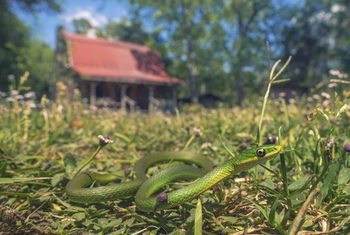
Snakes do not actually damage the garden — in fact, common varieties prey on other pests such as slugs, mice, voles and beetles. However, poisonous species are a serious threat to green thumbs and pets, and even nonvenomous snakes can bite — or just plain scare — gardeners. Different types of store-bought repellents affect only certain types of snakes, but some organic tricks help keep your garden serpent-free, regardless of the species.
Essential oils to repel snakes
The Lady Bird Johnson Wildflower Center at the University of Texas at Austin reports that the U.S. Department of Agriculture’s Animal and Plant Health Inspection Services actually relies on all-natural oils to repel snakes. The APHIS has found cinnamon oil and clove oil, also known as eugenol, effective in repelling some snakes.
Apply essential oils as a spray, diluting about 4 to 8 drops per gallon of water, or carefully place cotton balls or fabric strips saturated with the oils around snake-prone areas.
Marigolds
No plants have been scientifically proven to be snake repellents. However, the Greenwood Nursery reports that some gardeners have successfully repelled garden infestations by planting marigolds (Calendula officinalis). As an added bonus, marigolds are known to effectively repel mosquitoes.
Fencing
Although a snake-proof fence for your yard or garden is perhaps the costliest and most labor-intensive method for repelling snakes, it’s also an efficient, long-term solution that is completely eco-friendly. To effectively repel snakes, the fence must reach about 6 inches into the ground and slant outward at a 30-degree angle. Heavy galvanized hardware cloth with 1/4-inch mesh keeps serpentine pests from entering.
Other Methods
Similar to fences, funnel traps serve as a humane snake-control method for organic gardeners. While most store-bought snake repellents contain the chemical carcinogen naphthalene, some natural varieties rely on minimal-risk, environmentally safe ingredients that emit scents meant to confuse the chemosensory systems of snakes. To prevent snakes from making their home in your garden, keep your grass neatly trimmed and your yard free or brush piles and other debris.
How to naturally repel snakes
Note: I commonly see people suggest mothballs. While these aren’t really natural anyway, please, don’t do this. Not only is it potentially illegal (using a product against label instructions is a crime) it can harm your children, pets, livestock, or other wildlife.
Lemongrass is a great herb to grow on your homestead. It repels mosquitos, ticks, and also helps repel snakes.
It is incredibly easy to grow and I really like how it looks. It’s pretty, effective, and has medicinal properties as well as culinary uses.
This herb will help keep snakes away from your property as well as ticks and mosquitos if it is planted around the perimeter. We pot ours and bring it indoors for overwintering because it can’t stay in the ground in our climate. We put several pots out around our deck all summer long and it helps keep all of the creepy crawlies and biting buts away. It’s definitely a favorite and I make it a point to grow it every year.
Garlic spray
Garlic is thought to be one of the best plants to use to repel snakes. And if you plant garlic, all the better. But, you can use some of your fresh garlic to make a spray that you can spray in the areas you want to try to keep snakes out of. This spray is perfect for places like doorways, windowsills and crawlspace entrances. It could also be used in areas around your chicken coop or other outbuildings. But be forewarned it takes a decent amount and you will have to reapply it every time it rains or every 2-3 weeks.
Directions
- Place a bit of water ( a couple tablespoons) in the bottom of a blender. Add the cloves of garlic and blend until you have a paste.
- Add the oil and blend up a bit more. Then, pour the liquid into a jar and keep the lid on for at least an hour before using.
- Put a couple of drops wherever you want to repel snakes. Doorways, windowsills, crawlspace entrances, around the perimeter of your home, wherever.
- You’ll need to reapply the solution if it rains or every 2-3 weeks for it to remain effective.
Mother in laws tongue
Mother in laws tongue is also known as the snake plant. It is a succulent variety that has sharp leaves. It doesn’t have an odor, unlike garlic and lemongrass but snakes do not care for its appearance. This succulent type of plant is attractive and very easy to grow. Water it a couple times a week and you’re good. In cool climates like ours, this is another potted plant that gets set outside in the warmer months. Down south you can keep it outdoors year round.
Clove and cinnamon oil
There are natural snake repellent products out there and they generally contain these two essential oils. These oils can be mixed together in equal parts and sprayed around areas that you want to repel snakes from. This mixture is not very effective on hard surfaces, though. You need something porous (like a wood deck) or the perimeter. Like the garlic spray you will have to reapply this regularly to see its benefits.
Keep your yard mowed, your garden weeded and your shrubs trimmed
Plants that attract snakes. Mice love tall grass, overgrown shrubbery, overgrown plants, and garden areas where there is a lot of cover. Since mice love these areas, you’re going to find snakes there.
I know how hard it can be to maintain everything, especially when most of us work as well as homestead. But, the more trimmed and cleaned up the areas around your property are, the less likely you’re going to attract snakes. I try to keep our yard mowed at least once a week. We moved our hostas further from the foundation block, and I try… try to keep the garden weeded. Our garden sits right behind our garage, so I know if I don’t have it weeded there will be mice in the garage and snakes slithering all around the yard (close to our coop). Weeding can be hard work and time consuming, but it keeps the snakes (and rodents) away.
Don’t give them a place to hide
Same idea as the overgrown grass, shrubbery and garden. Mice like to hide in those kinds of areas and so… what else are you going to find there? Snakes. They will slither in there waiting for their next meal and also to stay out of sight and in the shade.
If you have piles of wood, metal, trash, or anything else like most of us homesteaders do… you’ll probably find snakes in it. We try to keep our piles to a minimum and keep them picked up off of the ground. Right now I have sawhorses holding up our wood pile off the ground. Now, if I could just keep all those dang wolf spiders out of there….
Keep feed tightly enclosed
Again with the rodents. Where you attract rodents, you’ll attract snakes. And leaving food open out here would result in the neighborhood raccoons having a feast anyway right outside the chicken coop. Keep all feed, pet food, chicken, rabbit, horse, goat, whatever you’ve got going on… in a tightly lidded container. We use metal trashcans with tight fitting lids to store our feed in.
Just whatever you use, make sure the lid fits well and try not to sprinkle too much feed all over the ground if your chickens aren’t going to eat it. Though ours like to get in the bowl and scratch it out all over the ground anyway….
If you keep the rodents out, you won’t have near the problem with snakes. This isn’t to say that they won’t come around, they will, but less rodents equals less snake activity.
Get some chickens, pigs, and/or guinea fowl
Last spring we finally added guinea fowl to our flock of chickens and ducks. We had 6, something ate 4 of them while they were still fairly young keets and we have 2 left. They can be annoying. They can be noisy. They’re not really the brightest birds on the planet. But, they do have some pretty cool personalities and they will most definitely eat snakes. And ticks. And ours even attacked a fox that was trying to get into the chicken run and chased off a rogue rooster from our neighbors (still don’t know how that rooster got all the way over here….).
Pigs and even chickens are also great additions if you want a little fun on your homestead. My chickens go crazy over snakes, toads, and mice. If they see one, they’ll get it. They ganged up on a mole once… it didn’t end well for the mole. But anyway, livestock can be incredibly beneficial in several ways. These particular fowl and porcines can help keep those snakes away.
Choose some livestock critters, they’re beneficial in so many ways! Chickens, pigs and guinea fowl will all attack snakes. We added guinea fowl a little over a year ago now and while they can be a little noisy, we won’t be removing them from our homestead any time soon. I’ve watched them eat bugs and snakes and attack a fox that was trying to get into the chicken run. They’re not for everyone, but we find the benefits far outweigh the noisiness that they can often display.
There are several ways you can naturally repel snakes, but these are the most effective, safest ways I’ve found. I hope some of this information can help keep the slithers away from your homestead.
Control tips:
- If you or someone else is bitten by a snake that you think could be venomous, contact your Poison Control Center (1-800-222-1222) or your health care provider as soon as possible. It may not be necessary to identify the snake.
- If your pet is bitten and is experiencing pain, redness, swelling, or bruising, take your pet to your veterinarian right away. If your pet is not showing any of these signs, consider calling your veterinarian or the National Animal Poison Control Center at 1-800-426-4435 for advice.
- https://www.aphis.usda.gov/aphis/ourfocus/wildlifedamage/programs/nwrc/research-areas/SA_Brown_Treesnake/CT_Repellents
- plants that keep snakes away

